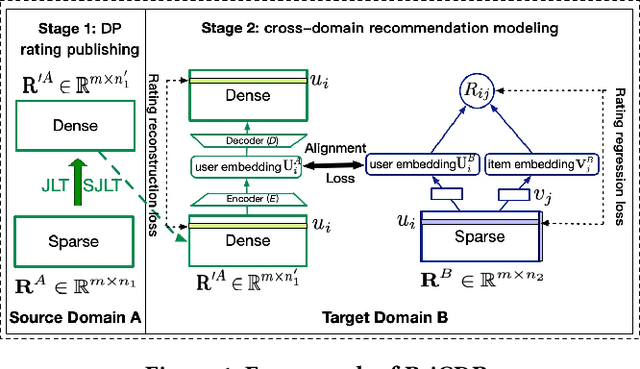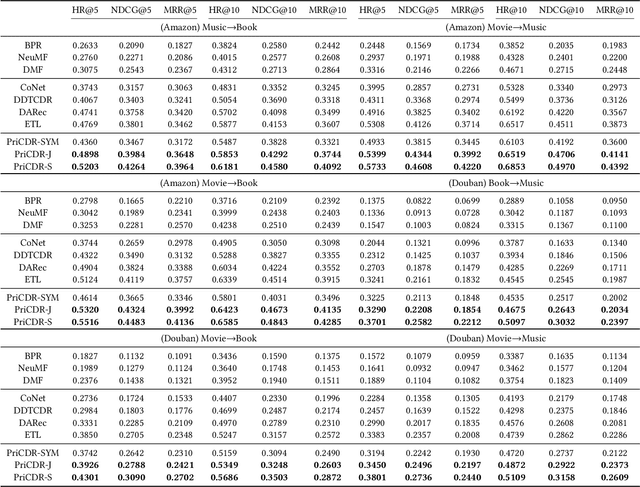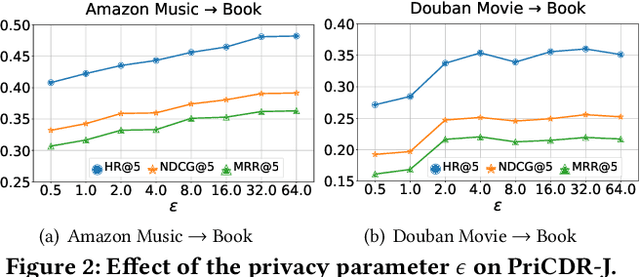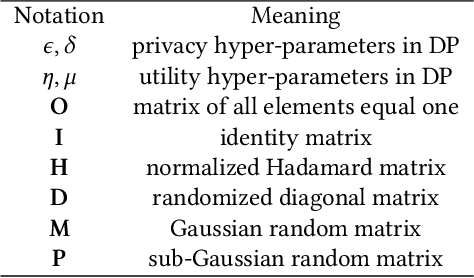Differential Private Knowledge Transfer for Privacy-Preserving Cross-Domain Recommendation
Paper and Code
Feb 10, 2022



Cross Domain Recommendation (CDR) has been popularly studied to alleviate the cold-start and data sparsity problem commonly existed in recommender systems. CDR models can improve the recommendation performance of a target domain by leveraging the data of other source domains. However, most existing CDR models assume information can directly 'transfer across the bridge', ignoring the privacy issues. To solve the privacy concern in CDR, in this paper, we propose a novel two stage based privacy-preserving CDR framework (PriCDR). In the first stage, we propose two methods, i.e., Johnson-Lindenstrauss Transform (JLT) based and Sparse-awareJLT (SJLT) based, to publish the rating matrix of the source domain using differential privacy. We theoretically analyze the privacy and utility of our proposed differential privacy based rating publishing methods. In the second stage, we propose a novel heterogeneous CDR model (HeteroCDR), which uses deep auto-encoder and deep neural network to model the published source rating matrix and target rating matrix respectively. To this end, PriCDR can not only protect the data privacy of the source domain, but also alleviate the data sparsity of the source domain. We conduct experiments on two benchmark datasets and the results demonstrate the effectiveness of our proposed PriCDR and HeteroCDR.
 Add to Chrome
Add to Chrome Add to Firefox
Add to Firefox Add to Edge
Add to Edge